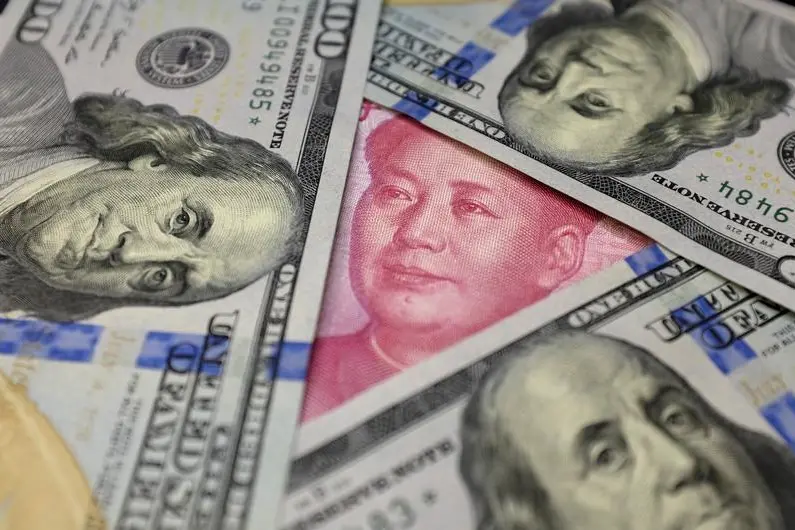PHOTO
HONG KONG - China’s currency is feeling tariff pain. Washington and Beijing have slapped duties on swathes of each other’s products, sending the yuan sliding towards 7 per dollar. Depreciation might cushion mainland exporters, but it also encourages capital flight, hampering government efforts to gin up a flagging economy. To compensate, China may once again have to tighten controls.
The renminbi, as the currency is officially known, was in a holding pattern for months. Market optimism disintegrated last week, though, when Trump suggested China had gone back on earlier commitments. On Friday, he raised the levy on $200 billion of Chinese goods to 25%. Beijing has retaliated in kind.
That prompted offshore traders to dump the yuan, pushing the rate over 6.9 per dollar on Monday. The onshore market, more tightly controlled, has softened to just below that. Investors who have long argued the renminbi is overvalued, like hedge fund manager Kyle Bass, have reason to argue the currency can soften even past 7 per dollar, a line the People's Bank of China defended last year.
Beijing, however, needs to focus on shoring up a bruised economy. A tentative recovery that looked underway in the first quarter showed signs of unwinding even before the trade battle resumed. Exports, which account for around one-fifth of GDP, fell unexpectedly in April, and factory activity cooled. If the central bank is forced to lower interest rates to revive investment, the currency might fall further.
Whether it crosses 7 or not, easing makes domestic assets less attractive. In April foreign investment into Chinese equities via the Hong Kong Stock Connect programme posted net outflows of $2.6 billion, snapping a five-month buying streak. Capital flight also makes it harder to stimulate. Beijing’s textbook response to outflows in the past has been capital controls. If the government raises barriers further, it’s bad news for those hoping to sell assets to Chinese buyers. It may be even worse for the debt market, if it gets harder for Chinese corporates to move money offshore: Refinitiv data shows Chinese issuers have $75 billion worth of dollar bonds maturing this year. Tourism, another conduit for moving cash offshore, could be hit too. Bass may grin; many others will grimace.
CONTEXT NEWS
- China’s benchmark CSI300 stock index declined 6% on May 6 on news that U.S. president Donald Trump had revived threats to apply 25% tariffs to $200 billion in Chinese goods if trade negotiations proved unsatisfactory. On May 10, the White House applied the duties.
- The offshore yuan, commonly referred to as the CNH, touched 6.9181 per dollar on May 13, a level not seen since December. The onshore yuan, which is bound by the central bank’s midpoint daily guidance rate, closed at 6.8799. That evening China announced it would impose higher tariffs on a range of U.S. goods, including frozen vegetables and liquefied natural gas.
(Editing by Clara Ferreira Marques and Katrina Hamlin)
© Reuters News 2019





















